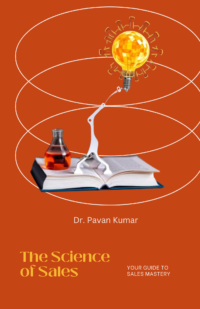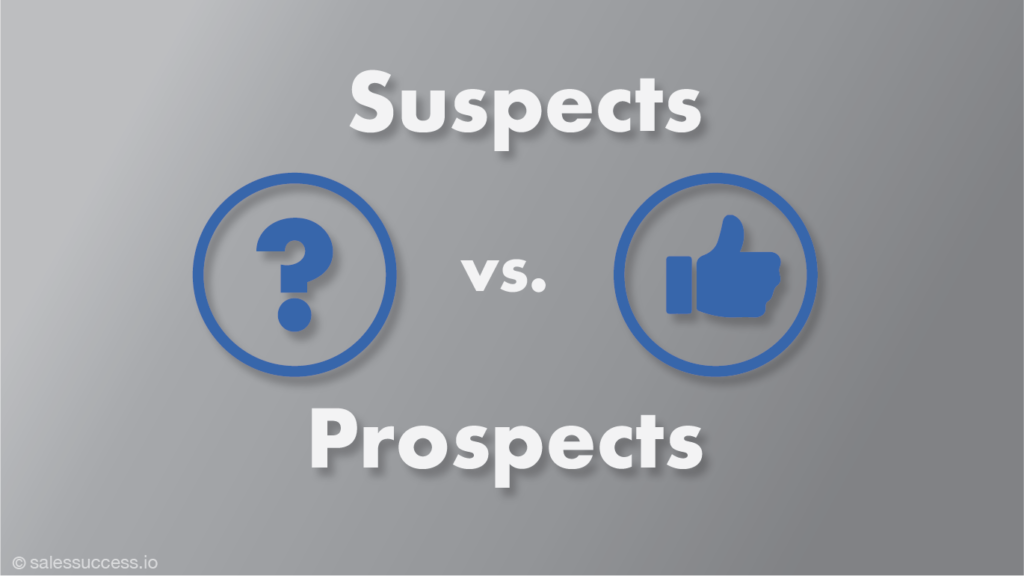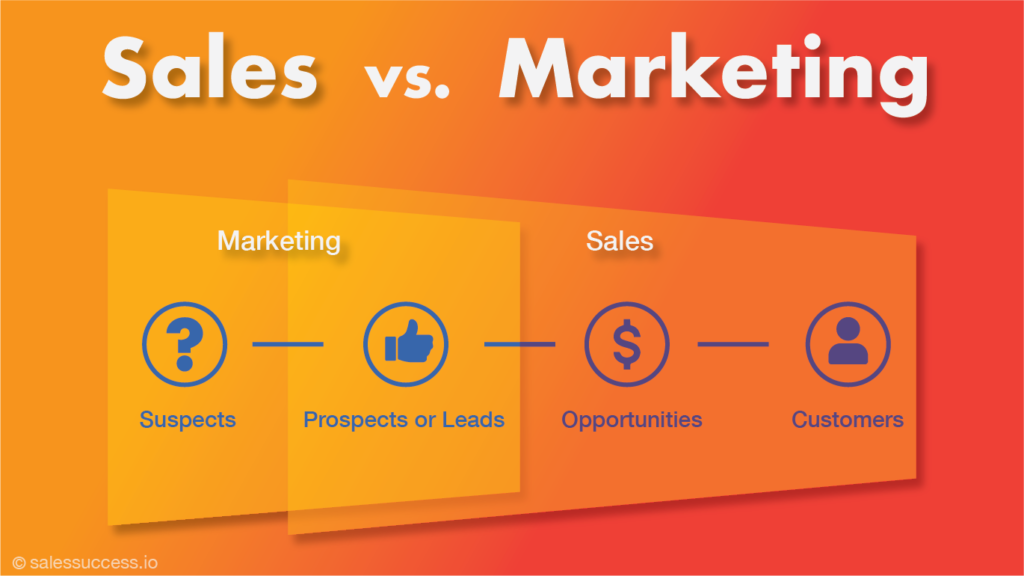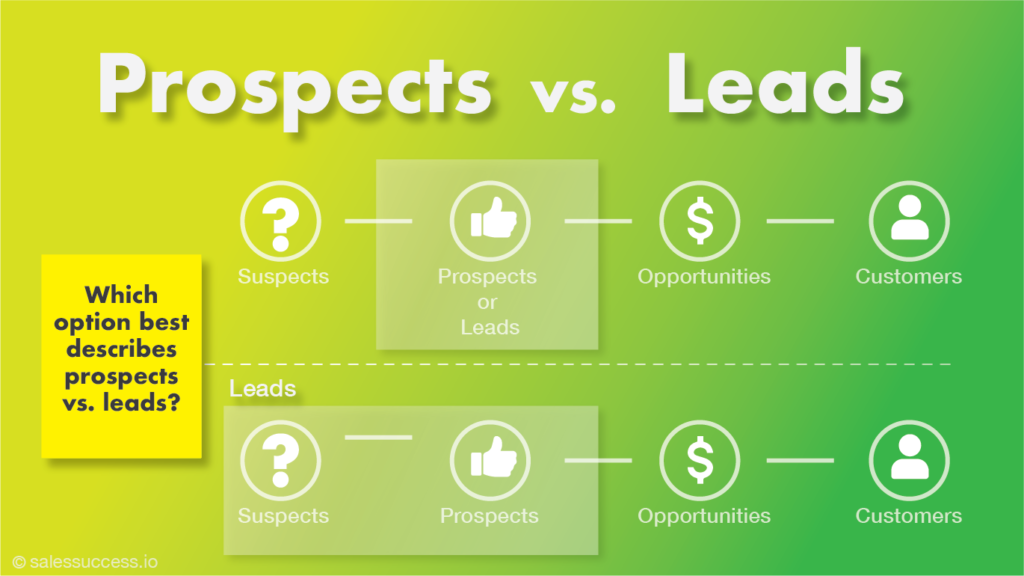- Cold, Warm, and Hot Leads: Navigating the Lead Journey
- Leads vs. Opportunities: Defining the Sales Journey
- Prospects vs. Leads: Decoding the Sales Funnel
- Suspects vs. Prospects: Building a Quality Sales Pipeline
- Sales vs. Marketing: Understanding the Distinction
![]()
Introduction
Salespersons ought to know the suspects vs. prospects distinction in order to ensure their pipeline is of high quality.
In the post Sales vs. Marketing, we described the overall marketing and sales conversion of suspects into prospects, opportunities, and customers:
Suspects → Prospects → Opportunities or Deals → Customers
In this post, we demystify the concepts of suspects and prospects.
Target Market Segments
Products and services have pre-defined target market segments.
Product Managers and Product Marketing Managers are responsible for imparting this knowledge to sales teams.
Target market segments are the starting points for defining a suspect and prospect in sales and understanding the difference between the two.
Marketers use a process called segmentation, targeting, and positioning (STP) to pinpoint the target market segments with unmet needs that the brand addresses and serves.
Following the STP process, products and services are defined and developed as part of a marketing mix that best addresses the needs of the target segments.

Read the book here.
ICP and Buyer Personas
Within the target market segments, marketing further profiles a hypothetical company that is the “perfect” customer for your offering.
Called the ideal customer profile (ICP), such a company derives the maximum benefit from your offering.
Targeting such companies shortens sales cycles and yields the greatest sales success.
Defining ICP is not enough as at the end of the day, sales are done with actual people within companies.
To this end, marketing goes beyond ICP to profile the buyer within target companies.
The profile is a semi-fictional representation called a buyer persona.
Multiple buyer personas are defined as corresponding to the multiple members of a virtual buying center within the target companies consisting of decision-makers, influencers, vetoers, users, and gatekeepers.
Difference between Suspects and Prospects
Suspects in sales are all the businesses and buyers who fall into the target market segment(s) of a product or service defined by marketing.
In fact, suspects fit the ICP and buyer persona.
Despite fitting the ICP and buyer persona, suspects are called so because they may not be interested in buying the offering, to begin with.
Suspects may or may not be interested in buying a product or service.
As the name suggests, prospects are potential customers for your business.
Suspects become prospects when they signal their buying interest and it is evident to salespersons.
Suspects → Prospects
Although suspects fit the ICP and buyer persona for your offering, they have to be interested in your product or service in order for you to consider them as prospective customers.
Prospects are potential customers for your business who show interest in buying your product or service.
You should ideally spend all your sales efforts on prospects and not suspects.
Your sales performance and sales forecast will both be impacted negatively otherwise.
If your pipeline includes suspects that you do not distinguish from prospects, then those suspects will consume your time and effort but not convert into sales.
Are Suspects and Prospects the Same as Leads?
While comparing lead vs prospect vs suspect, depending on who you speak to or the school of thought, only prospects are considered as leads or both suspects and prospects are considered as leads.
Suspects → Prospects or Leads → Opportunities or Deals → Customers
Leads (Suspects → Prospects) → Opportunities or Deals → Customers
Read our blog post prospects vs. leads, which points out the confusion reigning these concepts.
Cold, Warm, and Hot Leads
There is also a classification of leads into cold, warm, and hot.
In another post on the topic Hot, Warm and Cold leads, we make it clear that suspects are cold leads and prospects are warm leads.
Cold Leads (Suspects) → Warm Leads (Prospects)
The point here is that both suspects and prospects are leads.
The Bottom-line
Whereas a suspect’s interest level is unclear, a prospect’s interest is clear to the salesperson.
Furthermore, suspects must be identified and nurtured.
This know-how of a suspect vs. prospect in sales is ultimately critical to building a quality pipeline.
Check out more videos on Suspects vs. Prospects on our YouTube channel.
Subscribe to our Blog



